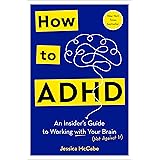Disabilities are as varied as the individuals who have them. If you have disabled loved ones, you’ve likely wondered how to be a better friend to them. Here’s how to better support your disabled friends and family.
Remember That Disabilities Look Differently
When you think of a disabled person, what do you think of? Likely someone with a visible disability, such as wheelchair users. These are people with whom you can physically see evidence of said disability.
However, it’s important to remember that many disabilities are invisible. Many individuals experience harassment or invalidation daily because other people cannot see their disability and therefore act as if it doesn’t exist. Examples of invisible disabilities include endometriosis, chronic pain and fatigue, and arthritis.
There is a subset of invisible disabilities that includes neurodevelopmental disorders, such as ADHD and autism. While these are not physical disabilities, they impact a person’s life just as much.
Just Say “Disabled”
Many people in the disabled community agree: just say disabled. “Disabled” is not a bad word; it’s accurate.
Even if it’s well-intentioned, language like “differently abled” or “special needs” is infantilizing and invalidates the disabled person’s experience. Person-first language, like “person with autism” or “person with a disability,” can feel othering to some. Language like this often does more harm than good; if speaking about your disabled friend, just refer to them as “disabled.” Or, better yet, start by asking what your friend’s personal preferences are on the matter.
Respect Their Mobility Aids
If your disabled friend or family member uses mobility aids, be respectful. Many disabled individuals view their mobility aids as an extension of their body. Just like you wouldn’t grab someone’s arm without their consent, don’t touch their cane or wheelchair without asking.
Most disabled people move through the world on their own just fine. Allow them to move without your assistance—if they need help, they’ll ask!
Keep Accessibility in Mind
When going out to restaurants, bars, or stores with disabled friends or family, always confirm that place is accessible. Confirm that the places you’ll be going have ramps, wide-enough doors, and any other necessary accommodations.
When hanging out with autistic loved ones, check if the place has overly bright lighting or is overcrowded and noisy. This is great advice for anyone with sensory sensitivities. Keep in mind that sensory-seeking autistic people may be comfortable with lots of stimulation, like clubs or rock shows, while sensory-avoidant autistic people may not be. If you’re not sure what your friend’s limits are, just ask!
Making your home accessible is another great way to support your disabled friends and family. If your loved one uses mobility aids, making your home more accessible is a great way to show your support. One example of how to do this is adjusting your furniture layout to create wide, straight paths of travel. If your loved one is autistic or has other sensory sensitivities, reduce noise and lighting levels prior to them coming over.






